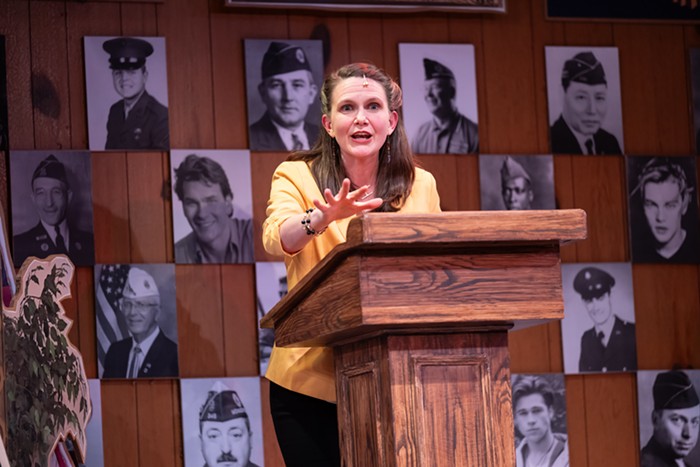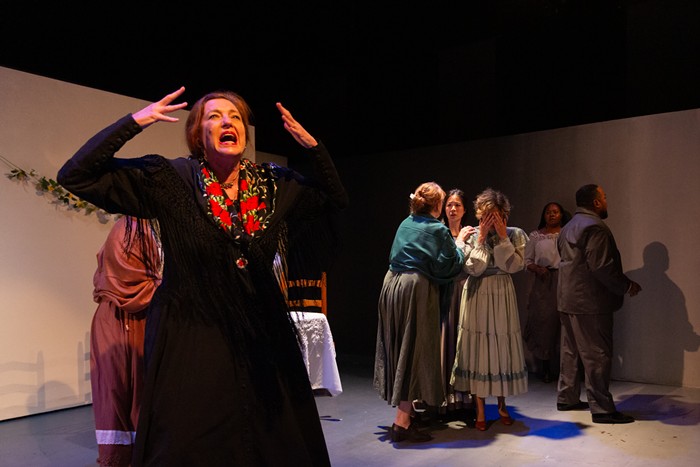Two years ago, Portland Center Stage transformed a classic Northwest novel into a memorable stage production with an adaptation of Ken Kesey's Sometimes a Great Notion. With their current production of Snow Falling on Cedars, adapted from David Guterson's 1994 novel by Kevin McKeon, they attempt a similar feat. It's a sensible formula, one that offers audiences a new way of connecting with literature that speaks directly to our region.
Guterson's novel is set on a tiny Puget Sound island in 1954, in a community whose main industries are fishing and agriculture. A Japanese man, Kabuo (Bruce Locke), has been accused of killing a white man; the two men were known to have recently argued about land, a dispute that dates to back their parents' generation. The show's organized around Kabuo's criminal trial: As witnesses are called, the recent history of the island unfolds in a series of flashbacks, including the internment of its Japanese American citizens during the war, and Kabuo's own stint in the Army.
Thematically, the show explores notions of community and identity, but it's really the courtroom procedural at its heart that keeps Cedars consistently enthralling. A complicated picture of the island's tensions, romances, and resentments slowly unfolds through the framework of Kabuo's trial, and McKeon's script is efficient and riveting.
Most notably, though, Cedars is exquisitely designed: Diane Ferry Williams' lighting alone is a constantly shifting marvel, shrouding the stage in murky fog or glowing with the faint streaks of approaching dawn. The set, too, is stunning: Simple and striking, a fishing boat hangs suspended above an otherwise bare stage, a constant reminder of the water that defines the island.
The one production element that doesn't succeed is the acting, which at times feels downright amateurish, replete with weighty pauses and the sonorous intonation that actors occasionally employ to communicate that Theater Is Really Serious Stuff. The principles do fine—it's the supporting actors, often taxed with playing two or more different roles, who occasionally distract (particularly in the show's ill-conceived introduction, a grandiose expository sequence that sees the actors alternating lines as they introduce the story). To take a cue from Twilight apologists, though: The storyline is so riveting and the staging so beautiful, that weaknesses in the acting are easy to overlook.



















